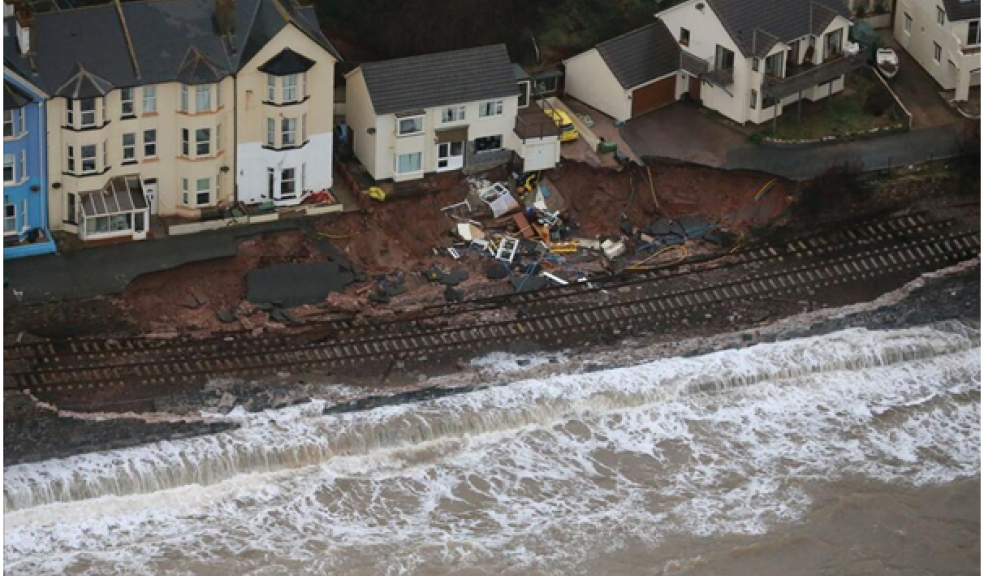
Dawlish alternative route choice revealed
Network Rail has revealed its choice for an alternative railway line to the heavily damaged Dawlish line today.
The plans come as the rail authority had consider an alternative to the current coastal line after the recent storms destroyed an 80m section of track near Dawlish.
The potential route from Okehampton to Plymouth via Tavistock through areas of Dartmoor National Park has already come under criticism from some transport campaigners as it bypasses large areas of South Devon.
Calling for further rail investment in the Exeter Daily today, Transport Campaigner Martyn Goss, writes: “It is essential that local train services to Dawlish and Teignmouth (and on to Torbay) are preserved, but this does mean making a second route viable sooner rather than later.
“The Okehampton line has its attractions but this should be seen as an addition not instead of the Teign Valley option.”
"My preference for the Teign Valley was on the grounds that the distance is shorter and land issues [are] less complex and that therefore the track could be re-instated more quickly." Mr Goss added.
"I would be happy with this proposal if it can be done sooner rather than later... The reality is that we are experiencing ever extreme weather conditions and will require a second route as soon as feasible.
"Clearly I would like to see the Dawlish route retained because of the service it offers to local towns and to Torbay. The Okehampton route would benefit Plymouth and Cornwall, rather than south Devon. But both are needed for the vitality of the County."
The Teign Valley option which would see a route travel via Christow and Heathfield and the Okehampton line are among three routes discussed locally in recent years.
The third option known as the Dawlish avoiding route would have passed inland behind Teignmouth and Dawlish avoiding the current coastal route.
However, according to the BBC, Network Rail is only considering the Okehampton to Plymouth line as a likely option.
An outline study conducted by Network rail last year found that the secondary route would cost hundreds of millions of pounds to complete.
The current route through Dawlish is currently undergoing extensive repair work but is not expected to be re-opened until mid-April.
A spokesman for Network Rail described the repair process: “work to protect the damaged sea wall site in Dawlish from the sea is going well in between high tides.
“A row of shipping containers is being put in place and filled with rubble to provide a breakwater, while concrete spraying has continued, in order to protect the vulnerable sub-soil.”
A bus service is currently replacing the line between Exeter St. Davids and Newton Abbot for passengers on the line.
In the wake of the damage to the Dawlish Line, several local politicians have called for government action on in proposing a new route.
Exeter MP Ben Bradshaw said: “The government needs to ensure that it’s repaired and operable again as soon as possible. But the government also needs to do a review into a long term re-routing of the line.”
Conservative MP for Newton Abbot, Anne Marie Morris, writes on Twitter: “To be clear- my position on future of railway line - Dawlish line is sacrosanct as far as I am concerned -crucial to local economy [and] people.”
Last Friday, local MPs met with Transport Secretary Patrick McLoughlin to discuss the future of rail services including a review to be launched on a line re-route.
However, South West Green party Candidate, Dr Molly Scott Cato was critical of the response.
Dr Scott Cato said: “Suddenly, now there’s a crisis, we hear from local MPs that there is money available having been told repeatedly there isn’t any money. I am not impressed at this idea of waiting for a crisis before we act.
“What we know about climate change is that there will be more unpredictability and more crises. If we weren’t spending money on HS2 there would be plenty of money for opening up a series of regional railway lines and that would be better for the quality of life for people in the South West and a boost for the regional economy, particularly for tourism.”
While a recent Met Office report states that there is no 'definitive answer' to the role of climate change on the recent extreme weather, the forecasters report that increasing intensity of weather is what many expect from in a changing climate.
The Paper reads:"As yet, there is no definitive answer on the possible contribution of climate change to the recent storminess, rainfall amounts and the consequent flooding. This is in part due to the highly variable nature of UK weather and climate.
"Nevertheless, recent studies have suggested an increase in the intensity of Atlantic storms that take a more southerly track, typical of this winter's extreme weather. There is also an increasing body of evidence that shows that extreme daily rainfall rates are becoming more intense, and that the rate of increase is consistent with what is expected from the fundamental physics of a warming world."
This week will see even more bad weather as the Met Office warn of further heavy rain and strong winds to hit Devon later tonight and remain until Wednesday.
This could see further flooding and travel disruption in many areas of the region as rain falls on already saturated ground.
Picture courtsey of network rail.




















